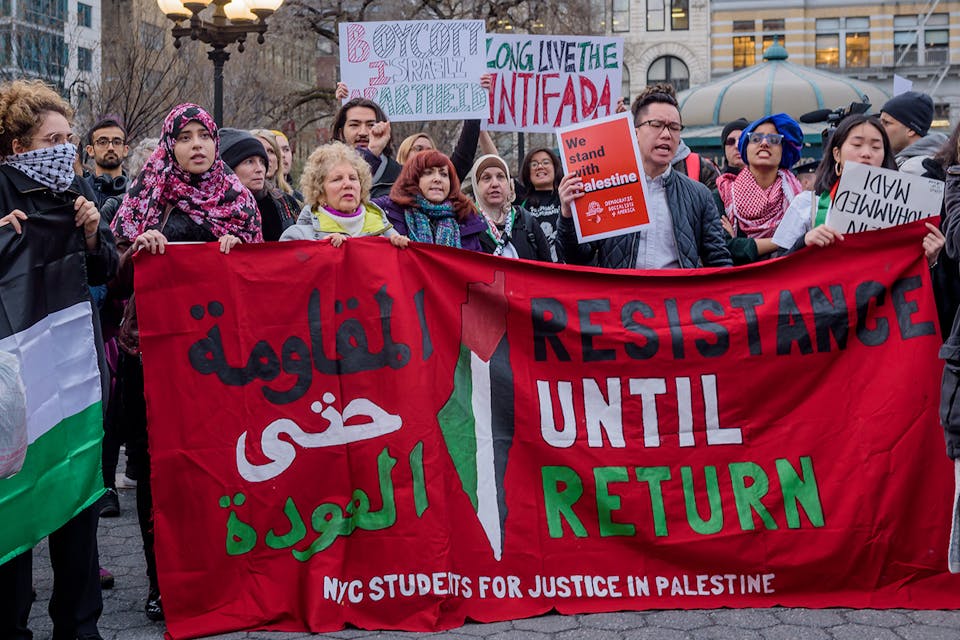
April 18, 2018
How BDS Is Undermining Academic Freedom
In pursuit of openly political ends, some professors risk destroying the principles and safeguards that for over a century have protected the freedom of their colleagues.
The Boycott, Divestment, and Sanctions movement (BDS) was officially launched in 2005 in a statement whose author was identified as “Palestinian civil society.” Among the statement’s demands were these: that Israel end “its occupation and colonization of all Arab lands,” dismantle the West Bank security wall built during the second intifada, recognize the “rights of the Arab-Palestinian citizens of Israel to full equality,” and promote the “right of return” for Palestinian refugees. To compel Israel’s submission to these demands, it called for “broad boycotts” and “divestment initiatives” akin to those levied against apartheid-era South Africa.
Thirteen years later, the movement has yet to convince most governments, companies, churches, artists, or universities to treat Israel as a pariah state. But even unsuccessful campaigns can make a great deal of noise and incite querulous debate—in this case, over Israel’s fundamental right to be considered a legitimate member of the family of nations. Today, almost three decades after the United Nations rescinded its notorious 1975 resolution equating Zionism and racism, some people, in some precincts, are still more than half-convinced that the UN had it right in the first place.
Preeminent among those precincts is American higher education. Colleges, universities, and scholarly associations have been prime targets for the BDS campaign because, even in the face of declining public respect for what they do, they still retain intellectual and moral clout. In higher education, small activist groups can with relative ease gain disproportionate power in, for example, student governments (to which most students pay little attention) and scholarly associations (to which most scholars are but marginally attached). And so, every year, student groups at many universities stage an “Israeli Apartheid Week.” Every year, with equal predictability, student governments pass resolutions denouncing the state of Israel as if Middle East policy were as much their business as the homecoming dance, and some scholarly associations debate the desirability of boycotting Israel as if the issue were as pressing as membership dues.